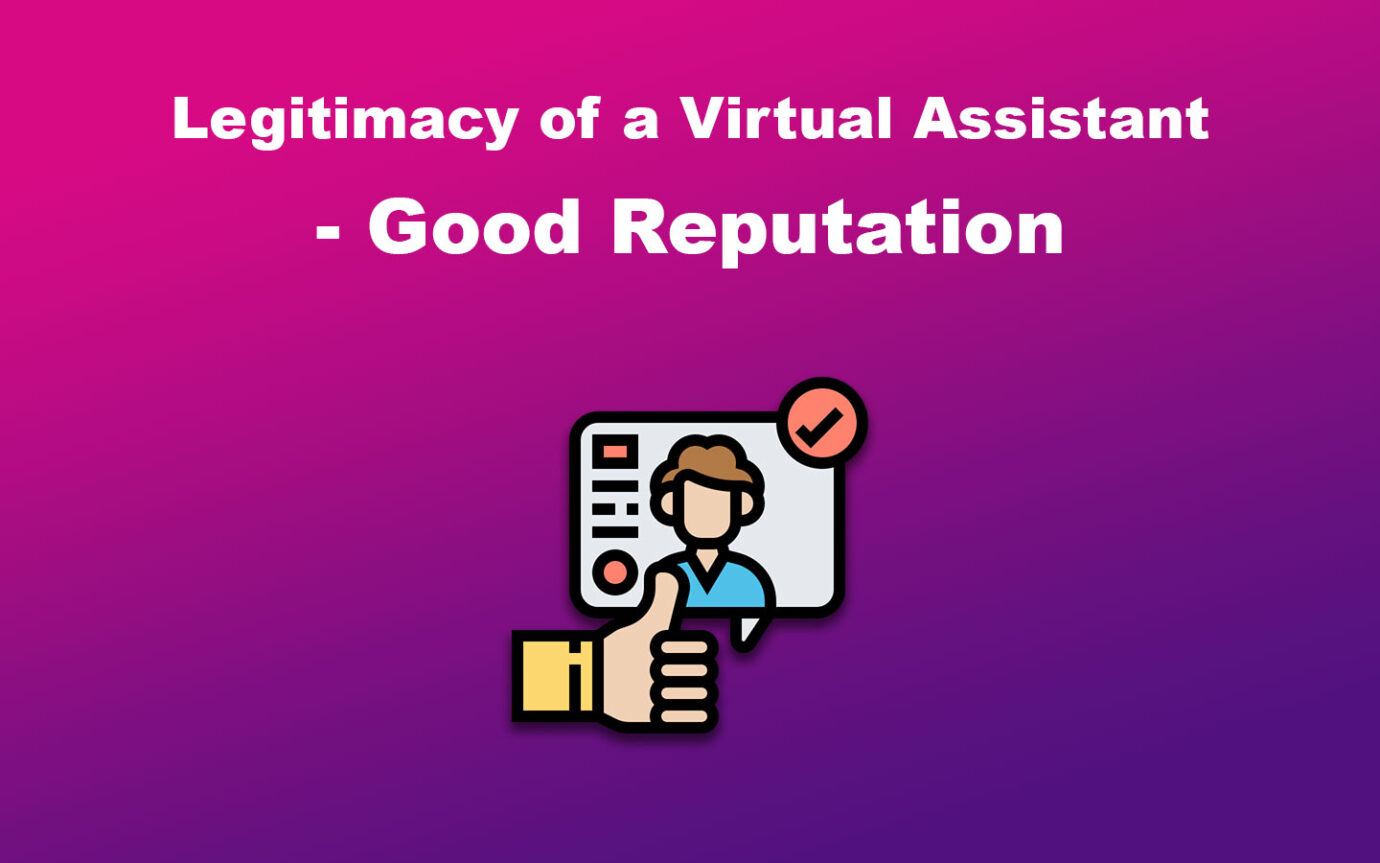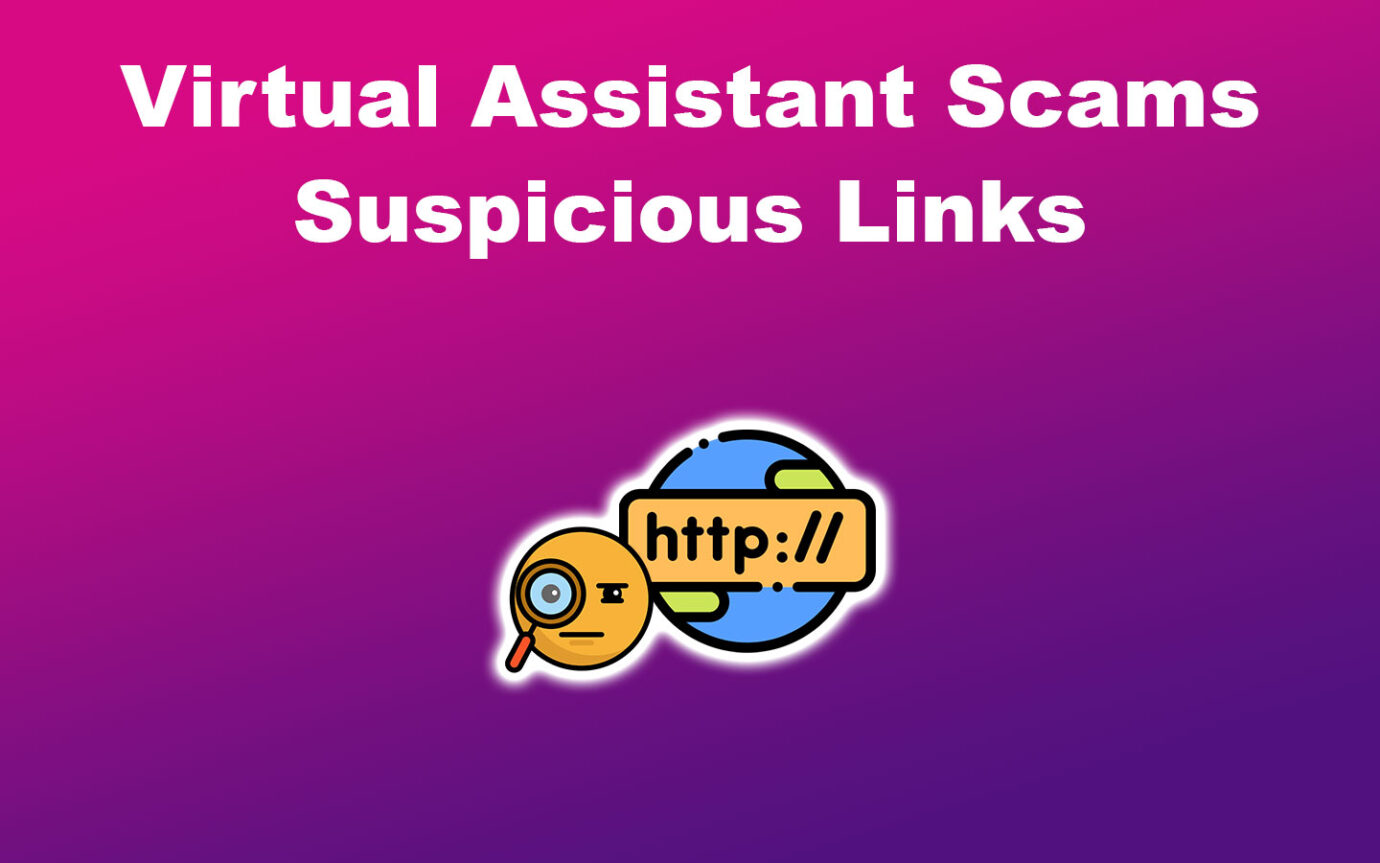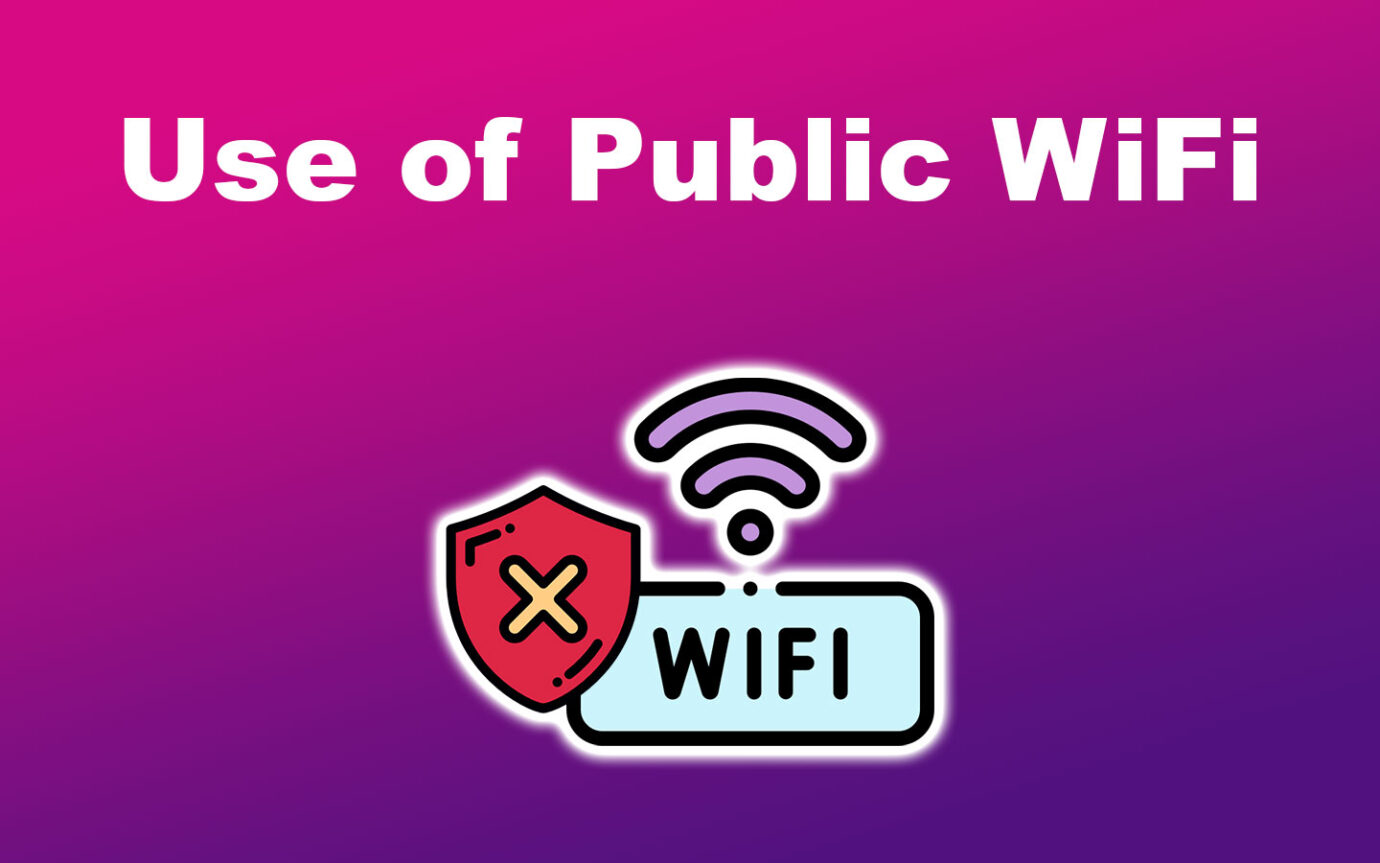Diving into an online virtual assistant journey has its pros and cons. For one, you may encounter virtual assistant scams. The online world is unsafe, so what can you do to avoid falling victim to scams?
In this article, we’ll discuss how you can spot and prevent virtual or personal assistant scams. Read on to learn more!
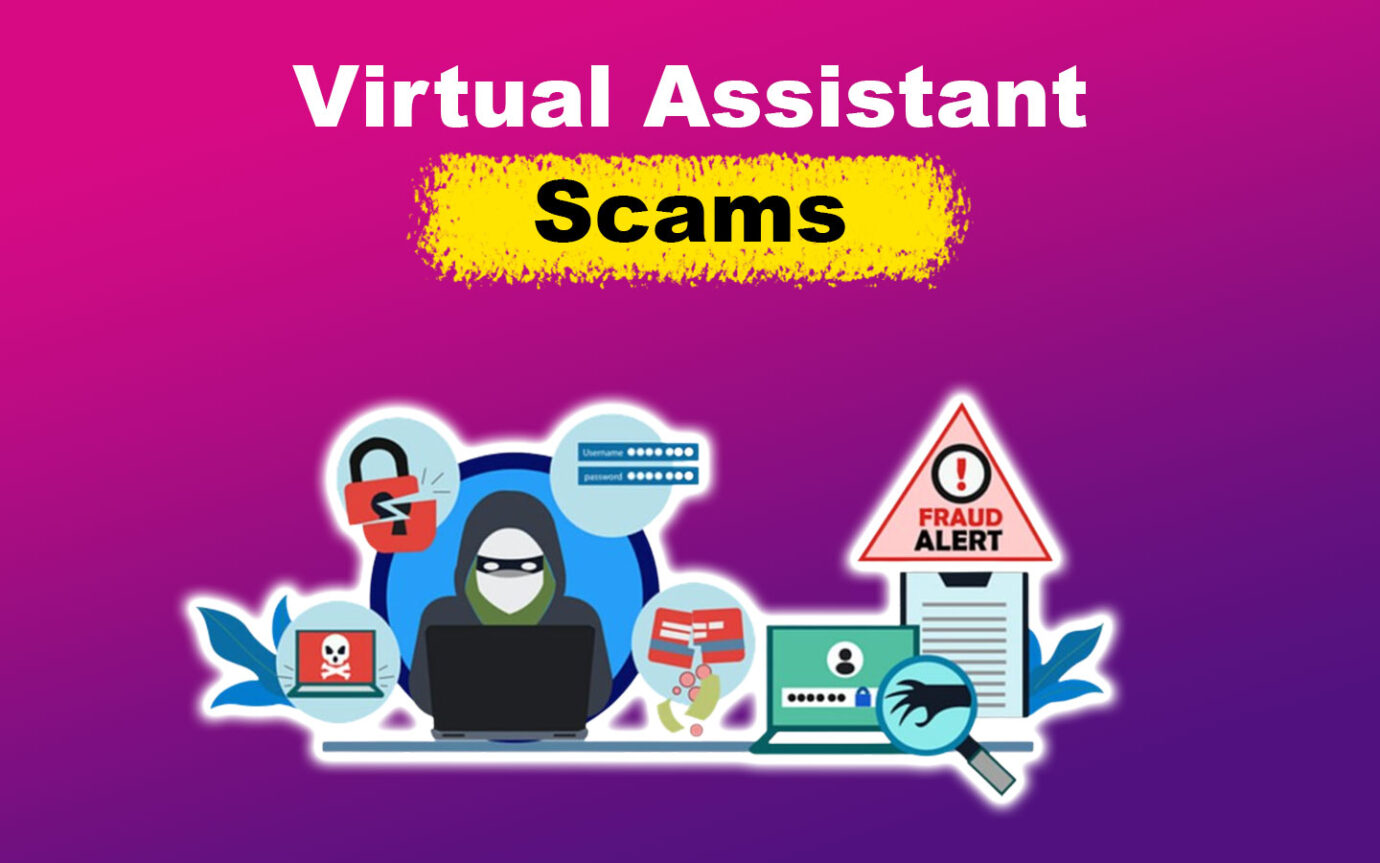
What Are Virtual Assistant Scams?
Virtual assistant scams are fraudsters who pose as legitimate virtual assistants to deceive people and businesses. These scams can come in many forms, but they often have the same goal of tricking victims into giving away sensitive information or money.
If you’re looking to hire a virtual assistant, you must be aware of potential scams. So, always be cautious and research before hiring a virtual assistant to ensure you work with a trustworthy professional.
At the same time, if you’re a virtual assistant looking for a potential client, be careful of red flags!
Here are the safe places where you can get clients as a virtual assistant.
How Legit Is a Virtual Assistant?
A legit virtual assistant is a remote professional with an established online presence, clear services, and positive reviews. They communicate transparently, use secure payment methods, and may provide a portfolio. Research, reviews, and reputable platforms help verify their legitimacy.
Here are some factors that can help determine the legitimacy of a virtual assistant:
- Detailed Portfolio.
They showcase skills and previous work through a portfolio or samples. -
Good Reputation.
Check for an established online presence and positive reviews.
- Clear Information.
Legitimate assistants provide clear services, pricing, and payment terms. - Use of Contracts.
They use contracts or agreements outlining work details and terms. They also prioritize client data confidentiality and may sign non-disclosure agreements. - Use of Secure Payment Methods.
Legitimate virtual assistants use secure payment methods, not unconventional ones.
Most virtual assistant jobs are legitimate; you must be picky when applying. The same principle applies if you’re looking for an assistant for your business.
How Safe Is a Virtual Assistant?
The safety of a virtual assistant is influenced by the chosen platform, user/business measures, and assigned tasks. Ultimately, the hirers determine whether or not the hired virtual assistant is safe.
Here are some factors that determine how safe a virtual assistant is:
- Monitor and Communicate Constantly.
Stay in touch with your virtual assistant and monitor the progress of your tasks regularly. This will help you identify issues early on and prevent potential problems.
Keeping an open line of communication and showing support can also go a long way in achieving success. - Perform a Background Check.
Checking their background or credentials is always good, especially if they handle sensitive tasks or information. Some VAs may even be happy to give you references or go through verification processes. - Make Them Sign an NDA.
If you’re working with a virtual assistant and need to share sensitive or proprietary information, it’s a good idea to have them sign a non-disclosure agreement. This legal document can provide extra protection for your confidential data. - Use Secure Payment Methods.
When making payments, it’s important to prioritize security and avoid using unconventional payment channels. Established virtual assistants and platforms usually offer standard and secure payment options. - Password Encryption.
It is important to avoid sharing your virtual assistant credentials with corporate accounts. Instead, you can grant access using a password encryption platform like LastPass.
Check LinkedIn for another take on the importance of data security for virtual assistants.
How to Prevent Virtual Assistant Scams
To stay safe from virtual assistant scams, it’s important to take proactive steps and be extra cautious. Remember that taking preventative measures is more valuable than dealing with the consequences later on!
Here are some tips to prevent virtual assistant scams:
1. Learn How to Spot Potential Scams
Before preventing potential virtual assistant scams, you must learn how to spot them. Here are sample red flags you should watch out for:
Red Flags For Virtual Assistant Job Postings:
- When They Say, “You’re Immediately Hired.”
Beware of scammers offering jobs too quickly, especially in the initial interview stages. Legitimate companies conduct thorough interviews to ensure a good fit between the candidate and the company. Be cautious if pressured to accept an offer immediately. -
When They Give You Suspicious Links.
Beware of scammers posting fake job listings for real companies. When applying online, scrutinize the website URL for subtle variations, such as extra dashes or added letters, which may indicate a red flag.
- When They Ask You for Payment.
Some scams demand upfront payment instead of personal information. They claim to offer a job but insist on payment for training or certification. Once they have your payment, they vanish along with the nonexistent job. - When They Interview You Via Chat.
A credible company wouldn’t conduct interviews through text or chat services. If someone suggests a text interview, it’s a signal to be cautious. Legitimate job interviews for remote positions occur over the phone, in person, and possibly on platforms like Zoom.
Red Flags For Prospect Virtual Assistants:
- When They Respond Too Slowly.
Slow responsiveness in handling inquiries should be noted. Delays or unclear responses might suggest a lack of professionalism or dedication. This might indicate that the prospect VA is a scam. - If the Price Is Too Low.
If the price seems too good to be true, it likely is a scam. Scammers often tempt clients with unrealistically low rates. - When They Don’t Want to Video Chat.
Authentic virtual assistants usually don’t mind having video calls to build trust and ensure transparency. - When They Don’t Onboard You Properly.
Trusted virtual assistants follow organized onboarding procedures to guarantee a smooth working partnership. Exercise caution if there’s no evident onboarding strategy.
Here are some best virtual assistant onboarding practices.
In general, if the VA job offering or the virtual assistant services you found are too good to be true, it’s probably a scam.
2. Research Properly
You should verify the company and job posting on your own. Then, conduct an internet search using the company’s name, including keywords like “scam” and “fraud.”
If it’s a known company, compare the provided job post URL with its official URL found through a Google search. If uncertain, contact the authentic company to confirm their contact information.
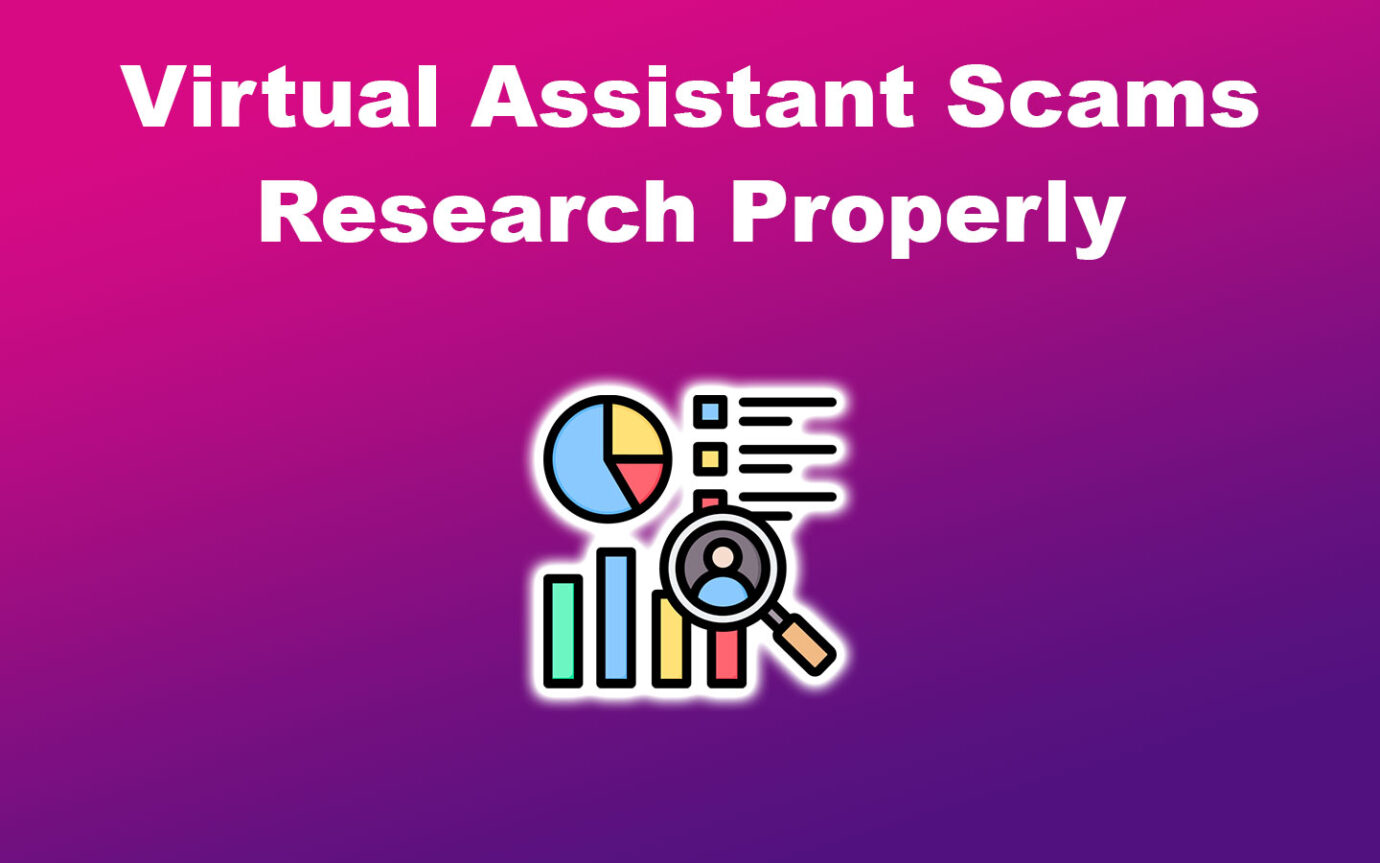
Also, if the job compensation seems unusually high, check the standard salary for that role online.
Also Read: Artificial Intelligence Annotation
3. Hire Locally
Dealing with virtual assistants from overseas can present challenges due to the intricate legal systems in foreign countries. Reporting scams and taking legal measures may be difficult, posing a potential risk to your business.
Hiring a virtual assistant from abroad might expose your intellectual property to varied laws and regulations, potentially jeopardizing its security. To protect your business and intellectual property, think about hiring a virtual assistant locally, where established legal safeguards can be relied upon.
4. Trust Your Intuition
If you feel a tingling sensation on the back of your neck, there’s likely a valid reason. If you choose not to engage with a potentially deceptive ad, the worst-case scenario is missing out on a good opportunity.
On the other hand, if you do respond, your identity could be stolen, leading to months of cleaning up the resulting mess.
Follow your instincts—it’s not worth the risk otherwise.
5. Document Everything
If you’re impressed by a virtual assistant (VA) company’s profile and opt for an in-person meeting, it’s essential to ensure their commitment by getting all deliverables in writing through a virtual assistant contract. If they prefer verbal agreements, you should be skeptical about their reliability.
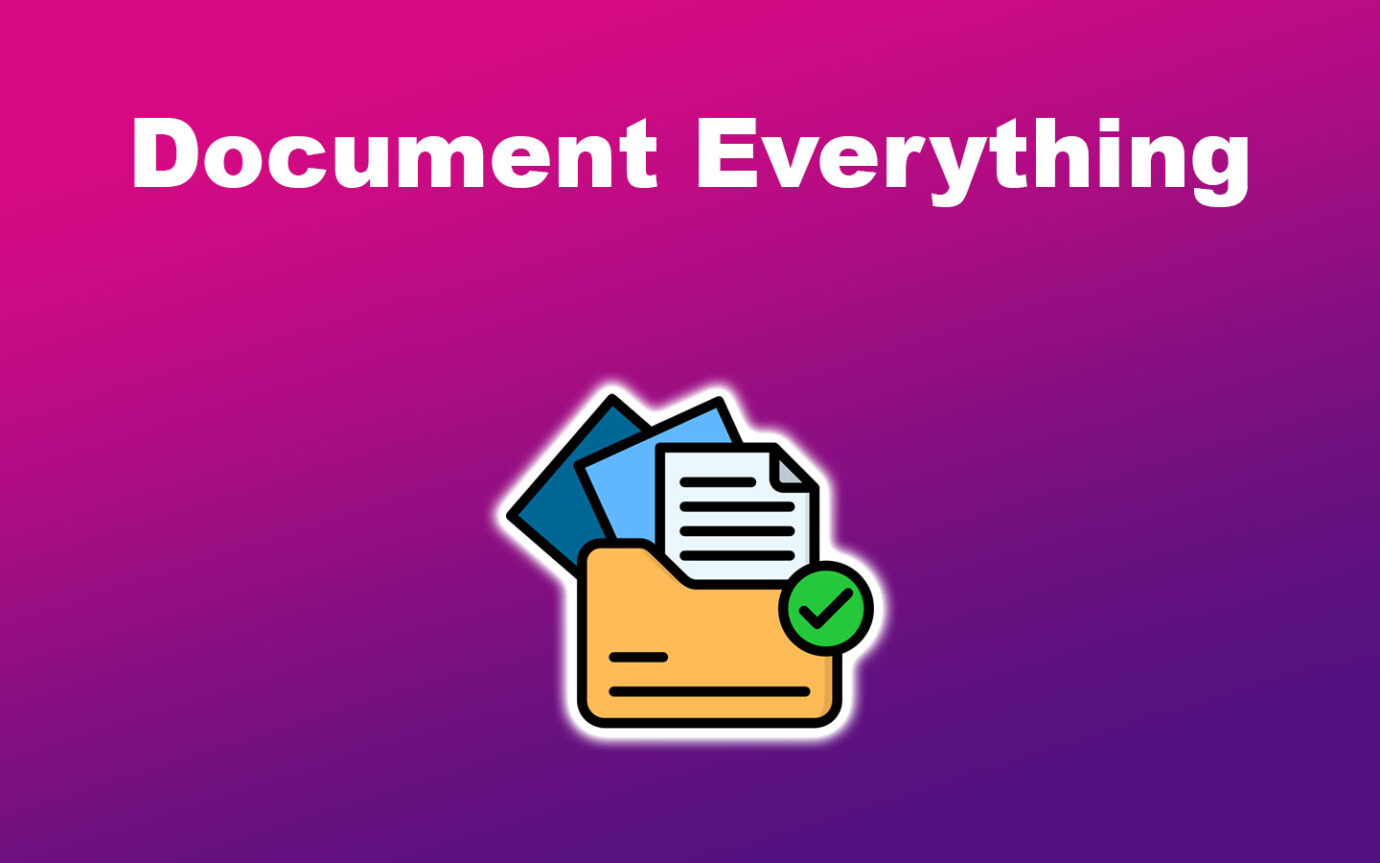
Choosing a reputable company that provides clear contracts detailing expected deliverables and timelines is vital for those unfamiliar with drafting VA contracts. The absence of a written contract from the VA company is another significant warning sign that should not be ignored.
6. Protect Your Company’s Intellectual Property
Your business’s intellectual property is a valuable asset and should be safeguarded at the highest level. The laws in the United States and Canada offer robust protection for intellectual property rights.
Hiring a virtual assistant from overseas might expose your sensitive information to foreign jurisdictions and regulations. Choosing a virtual assistant from your country can guarantee that your intellectual property stays secure within familiar legal boundaries.
7. Ask for References
When engaging virtual assistants or considering services, it is advisable to request detailed references, particularly when entrusting them with significant tasks. They might be fake virtual or personal assistants if they can’t provide you with any.
Legitimate and experienced professionals are typically more than willing to offer comprehensive references that shed light on their previous work, reliability, and overall performance.
These references can encompass feedback from past clients, testimonials, or endorsements that provide valuable insights into the virtual assistant’s competence and professionalism.
By actively seeking and thoroughly examining references, you can make informed decisions about the virtual assistant or service you plan to hire, ensuring a reliable and effective collaboration.
8. Opt for Established and Reputable Platforms
When hiring through a platform, you should carefully select platforms with a well-established reputation and are known for their credibility. Look for websites with a proven track record of rigorously vetting freelancers, ensuring they adhere to high standards of professionalism and competence.
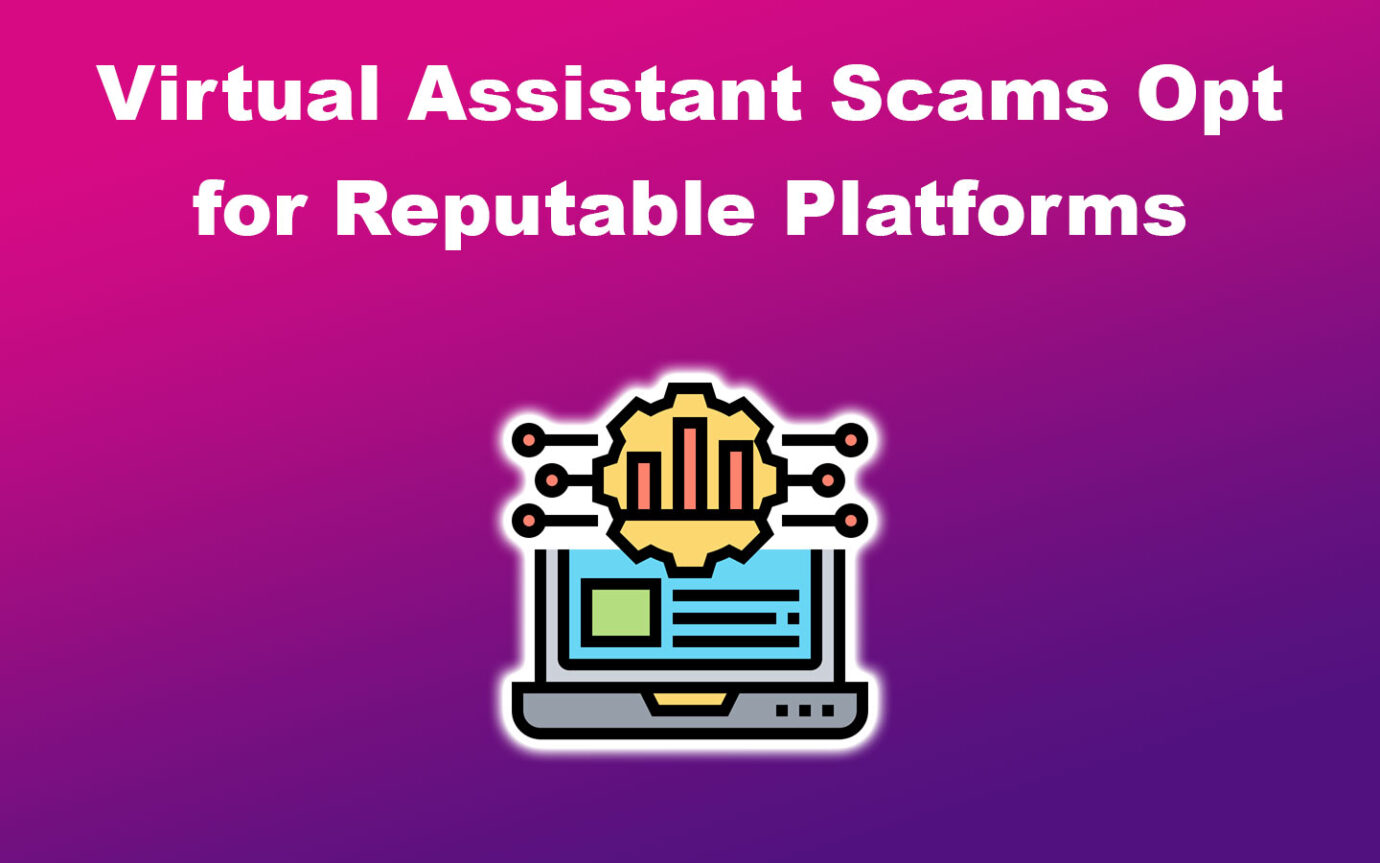
Avoid platforms that are obscure, less known, or lack verifiable credentials, as these may pose a higher risk of encountering unverified or fraudulent freelancers.
By choosing platforms with a solid history of reliability, you increase the likelihood of securing skilled and trustworthy virtual assistants for your specific needs.
Check out the articles on LinkedIn and The Wall Street Journal for more details on avoiding virtual assistant scams.
By keeping an eye out, researching, and following these protective steps, you’re making a friendly leap to minimize the chances of falling for virtual assistant scams. Always remember that genuine virtual assistants and services place a high value on professionalism, transparency, and security.
What Does “Personal Assistant Money Laundering” Mean?
Personal assistant money laundering is a common scheme where a personal assistant becomes involved in money laundering-related activities. This might involve misusing their position, skills, or access to financial information to facilitate or conceal money laundering activities on behalf of someone else.
The job description for a personal assistant scam often includes legitimate tasks related to their responsibilities. However, it places a significant emphasis on transferring funds or depositing checks. Making purchases on behalf of others is strictly prohibited as it is illegal in most jurisdictions.
Regardless of the reason for the request, you will be held legally liable for any funds transferred, which may be investigated by the governing financial authority in your jurisdiction.
Security Risks of a Virtual Assistant
Virtual assistants (VAs) often work remotely and don’t have 24/7 cyber incident response processes. They can still be targeted by cybercriminals who use them as a stepping stone to access or steal data from the enterprises they work with.
These are the security risks of a virtual assistant:
- Access to Financial Information.
VAs who process financial information but lack cybersecurity processes may put your data at risk. It’s crucial to protect financial information to prevent any security concerns.
For better financial security, a business should hire a remote bookkeeper. Here’s what a remote bookkeeper does and the benefits of hiring one. - Privacy Concerns.
Virtual assistants frequently deal with and store sensitive information. VAs must guard against unauthorized access, prevent the misuse of personal data, and take precautions to avert potential data breaches. -
Use of Unsecure WiFi.
Some VAs use public WiFi when working remotely. Virtual assistants must use secure private internet to protect against public WiFi security issues. Using public WiFi increases the risk of compromising your business.
- Missing Updates and Security Patches.
Not updating your software or connected devices frequently can make them susceptible to known security risks. VAs should regularly update everything they’re using to accomplish tasks. - Use of Weak Passwords.
Virtual assistants must use strong passwords to prevent cybercriminals from accessing private data. Weak passwords can lead to compromised data and identity fraud. As a business owner, it’s your responsibility to protect your IT network.
Here are some factors you should consider when outsourcing tasks to a virtual assistant.
Keep Yourself Informed on VA Scams
Virtual assistant scams evolve, so you should always keep yourself informed about the latest scams and fraud tactics in the virtual assistant industry. Awareness is a powerful tool in preventing potential scams.
We hope this article helped enlighten you about virtual assistant scams!
